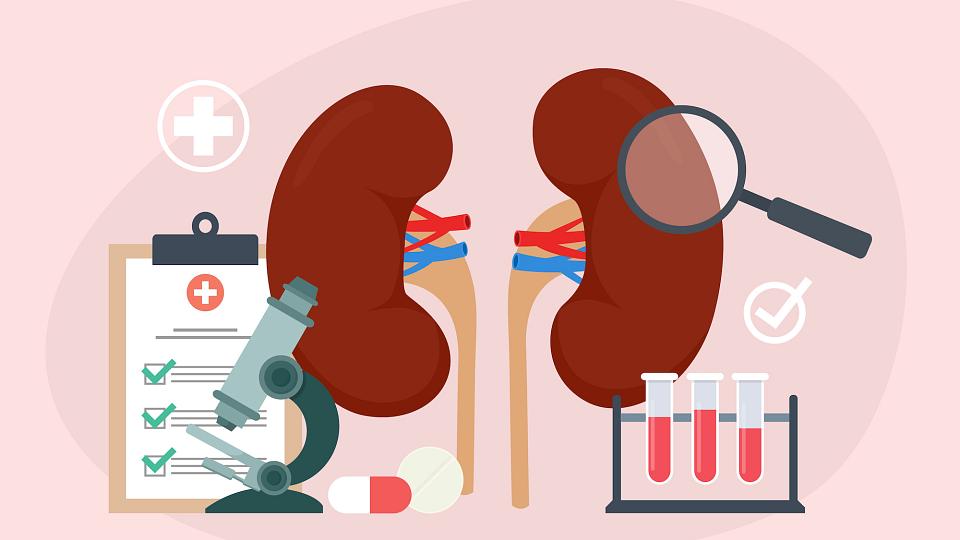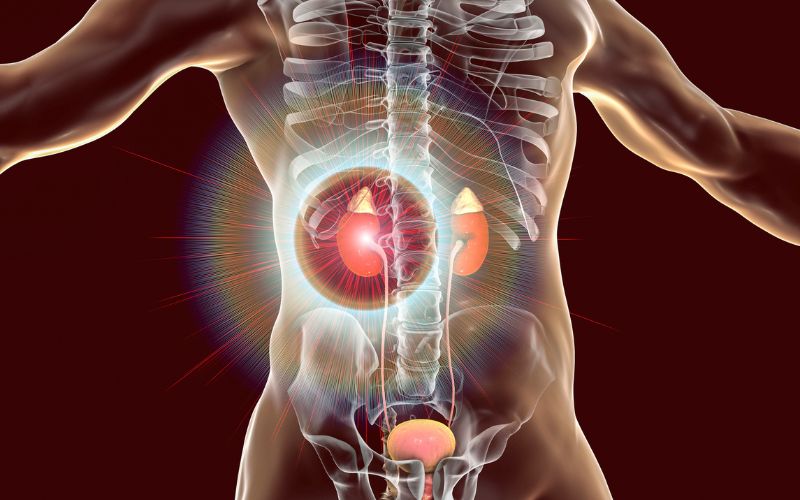How much creatinine is safe for kidneys?
Your kidneys work every second to clean your blood. They remove waste and keep your body balanced. One waste product they handle is called creatinine. Doctors often check your creatinine level to see how well your kidneys are working. Many people ask, “How much creatinine is safe for kidneys?” The answer depends on your age, gender, and health.
In this guide, we will explain the role of creatinine, its normal levels, and what happens when those levels rise. If you or someone close to you is concerned about creatinine kidney problems, this article will help
What Is Creatinine and Why Is It Important?
Creatinine is a chemical waste. It forms when your muscles break down a substance called creatine. The body sends this waste into the blood, and your kidneys filter it out through urine.
This process happens daily and helps keep your body clean. But if your creatinine level goes up, it may mean your kidneys are not working well. That is why creatinine is used as a simple test to check kidney health.
Knowing about creatinine for kidneys is useful for everyone—especially for those with diabetes, high blood pressure, or other chronic health problems.
Creatinine Normal Range: What the Numbers Say
Healthy kidneys keep the creatinine level in check. The range can vary slightly between labs, but most use these numbers:
-
Men: 0.7 to 1.3 mg/dL
-
Women: 0.6 to 1.1 mg/dL
-
Children: 0.3 to 1.0 mg/dL
This range is known as the creatinine normal range. Your doctor will compare your results to these numbers.
What Is Creatinine and Why Is It Important?
Creatinine is a chemical waste. It forms when your muscles break down a substance called creatine. The body sends this waste into the blood, and your kidneys filter it out through urine.
This process happens daily and helps keep your body clean. But if your creatinine level goes up, it may mean your kidneys are not working well. That is why creatinine is used as a simple test to check kidney health.
Knowing about creatinine for kidneys is useful for everyone—especially for those with diabetes, high blood pressure, or other chronic health problems.
What Causes Creatinine Levels to Rise?
High creatinine levels may mean your kidneys are under stress. But many things can cause this rise:
-
Dehydration: If you don’t drink enough water, your kidneys can’t filter well. This raises creatinine.
-
High Protein Intake: A diet rich in meat or protein shakes can raise your creatinine for a short time.
-
Medications: Some antibiotics and blood pressure medicines may affect your creatinine for kidneys.
-
Kidney Disease: Chronic kidney disease is a common reason for high creatinine. This is serious and needs treatment.
If your levels stay high over time, it may be a sign of creatinine kidney problems. You should speak to a urologist in Haryana for further help.
What Are the Symptoms of High Creatinine?
High creatinine levels do not always show clear symptoms in the beginning. That is why many people only find out during a routine test. But as the levels rise, you may notice:
-
1. Swelling in feet or hands
-
2. Tiredness and weakness
-
3. Less or foamy urine
-
4. Shortness of breath
-
5. Nausea or confusion
These signs may point to creatinine kidney problems or other health issues. You must visit a doctor if you feel unwell or your lab test shows high creatinine.
Creatinine Benefits and Misunderstandings
Some people hear about creatinine benefits in fitness, especially for those building muscle. This happens because creatinine is linked to muscle use. But creatinine itself is not a helpful nutrient or supplement.
It is only a waste that your kidneys must clear. So, if your creatinine is rising, it is not a good thing. It means your kidneys are working too hard or not well enough.
How to Control Creatinine Levels Naturally
Many patients want to avoid medicines and ask how to lower creatinine for kidneys at home. Some lifestyle steps help control your numbers:
-
Stay Hydrated: Drink enough water unless your doctor says to limit fluids.
-
Eat a Kidney-Friendly Diet: Cut down on red meat, salt, and dairy. Choose fruits, vegetables, and grains that are easy on the kidneys.
-
Avoid Unnecessary Medicines: Don’t take painkillers or antibiotics without checking with a doctor. Some drugs increase creatinine kidney problems.
-
Manage Other Health Conditions: Keep your blood sugar and blood pressure under control. These conditions damage kidneys over time.
-
Exercise Regularly: Gentle walking or yoga keeps you active without straining your body. It supports kidney health.
Always check with a nephrology hospital in Haryana before starting any major changes in diet or exercise.
When to See a Doctor or Specialist
If your creatinine level remains high after multiple tests, or if you have symptoms, it is time to consult a specialist. You may need more kidney function tests or an ultrasound. A urologist in Haryana will guide you based on your condition.
If your family has a history of kidney disease, don’t wait. Find the best kidney hospital in Haryana to get full checkups and personalized care.
Creatinine is more than just a number on a report. It shows how your kidneys are working. Keeping your creatinine level in the normal range is important for your health.
If the number rises, it may mean your kidneys need help. Learn the signs early. Eat better, drink enough water, and get the right tests done. With proper care and expert help, you can manage or even prevent creatinine kidney problems.
Always trust a skilled urologist in Haryana and choose a reliable nephrology hospital in Haryana like SS Kidney and Urology Hospital for full care. Your kidneys work hard for you—return the favor with regular care and checkups.














Request A Callback